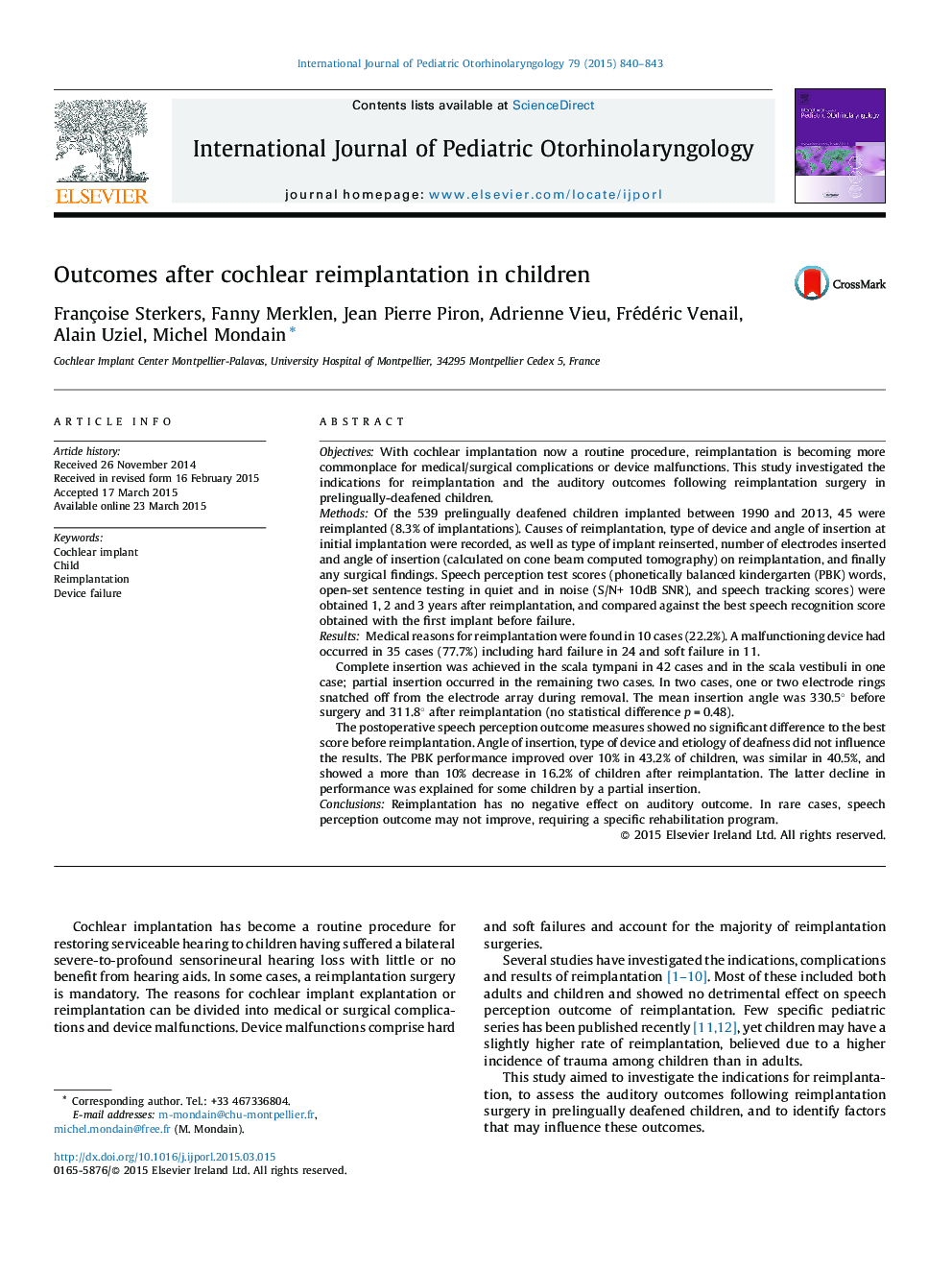| کد مقاله | کد نشریه | سال انتشار | مقاله انگلیسی | نسخه تمام متن |
|---|---|---|---|---|
| 4112359 | 1605995 | 2015 | 4 صفحه PDF | دانلود رایگان |
ObjectivesWith cochlear implantation now a routine procedure, reimplantation is becoming more commonplace for medical/surgical complications or device malfunctions. This study investigated the indications for reimplantation and the auditory outcomes following reimplantation surgery in prelingually-deafened children.MethodsOf the 539 prelingually deafened children implanted between 1990 and 2013, 45 were reimplanted (8.3% of implantations). Causes of reimplantation, type of device and angle of insertion at initial implantation were recorded, as well as type of implant reinserted, number of electrodes inserted and angle of insertion (calculated on cone beam computed tomography) on reimplantation, and finally any surgical findings. Speech perception test scores (phonetically balanced kindergarten (PBK) words, open-set sentence testing in quiet and in noise (S/N+ 10dB SNR), and speech tracking scores) were obtained 1, 2 and 3 years after reimplantation, and compared against the best speech recognition score obtained with the first implant before failure.ResultsMedical reasons for reimplantation were found in 10 cases (22.2%). A malfunctioning device had occurred in 35 cases (77.7%) including hard failure in 24 and soft failure in 11.Complete insertion was achieved in the scala tympani in 42 cases and in the scala vestibuli in one case; partial insertion occurred in the remaining two cases. In two cases, one or two electrode rings snatched off from the electrode array during removal. The mean insertion angle was 330.5° before surgery and 311.8° after reimplantation (no statistical difference p = 0.48).The postoperative speech perception outcome measures showed no significant difference to the best score before reimplantation. Angle of insertion, type of device and etiology of deafness did not influence the results. The PBK performance improved over 10% in 43.2% of children, was similar in 40.5%, and showed a more than 10% decrease in 16.2% of children after reimplantation. The latter decline in performance was explained for some children by a partial insertion.ConclusionsReimplantation has no negative effect on auditory outcome. In rare cases, speech perception outcome may not improve, requiring a specific rehabilitation program.
Journal: International Journal of Pediatric Otorhinolaryngology - Volume 79, Issue 6, June 2015, Pages 840–843
